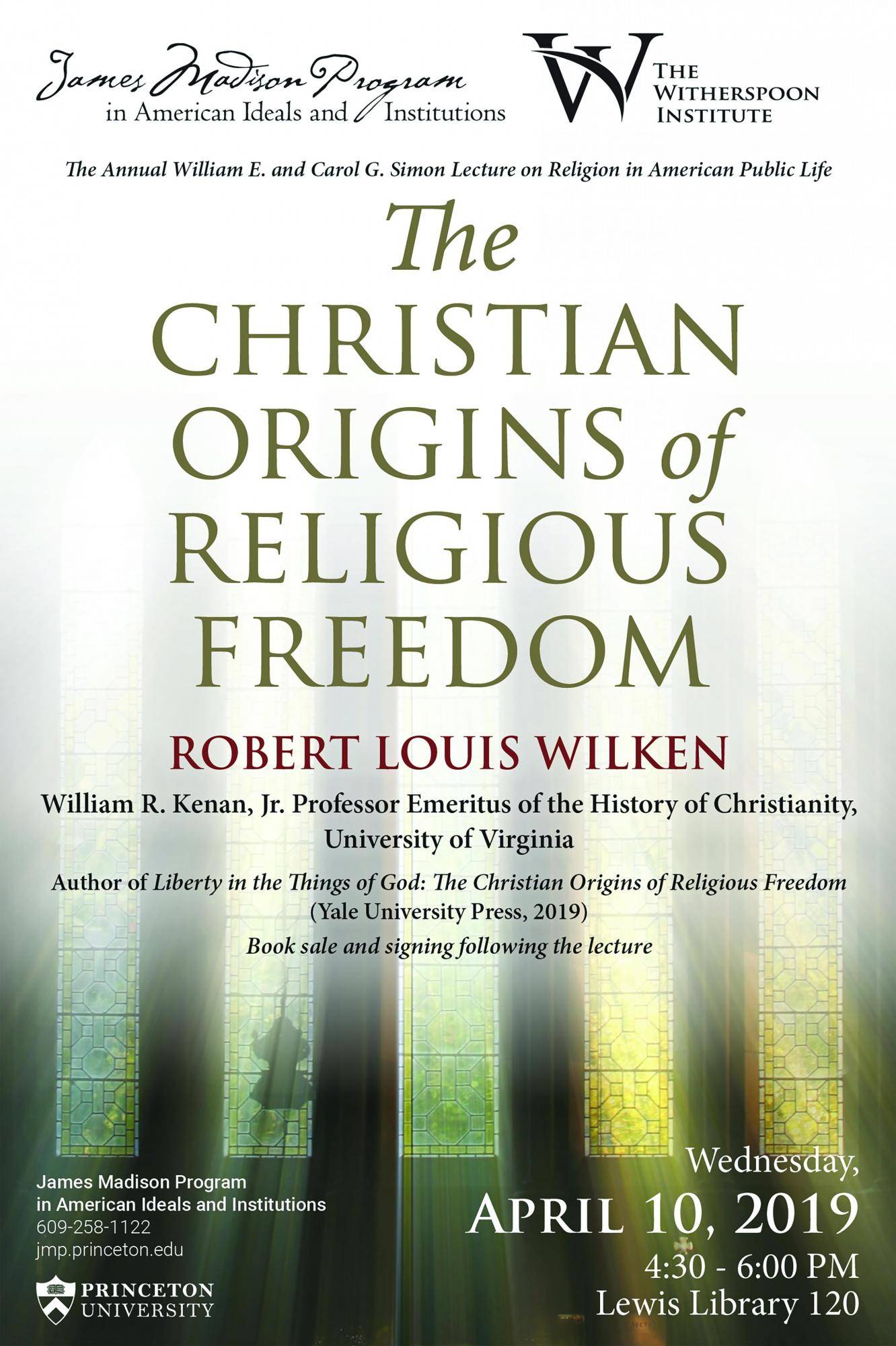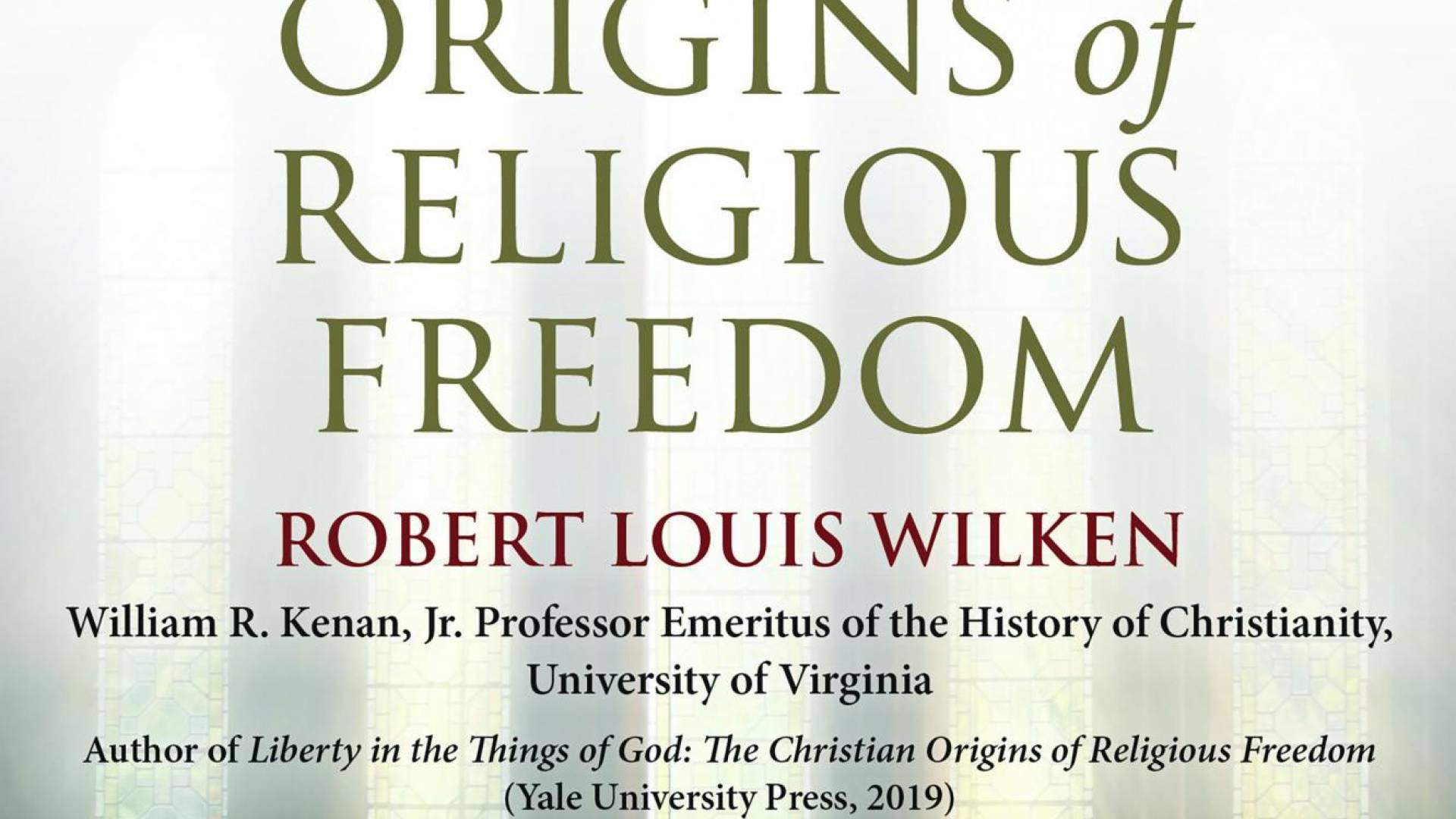Event details
The Christian Origins of Religious Freedom

The Annual William E. and Carol G. Simon Lecture on Religion in American Public Life
Robert Louis Wilken, William R. Kenan, Jr. Professor of the History of Christianity Emeritus, University of Virginia
Much writing on religious freedom focuses on the sixteenth and seventeenth centuries and on the Enlightenment. But the developments of those centuries are only intelligible when seen in a longer historical perspective. The ideas that undergird religious freedom have their origins centuries earlier in the writings of the church fathers and in medieval thinkers. They did not forge a doctrine of religious freedom, though the term “religious freedom” was first used by Tertullian in the third century, and for centuries their thinking was only a quiet murmur heard by the few. Nevertheless, writings defending the freedom and dignity of human beings from the early centuries were not forgotten and laid a foundation on which later generations could build. As the inheritance of the past was buffeted “by the rough torrent of occasion,” the Reformation of the sixteenth century, a doctrine of religious freedom as a natural right belonging to all human beings took shape. In the seventeenth century, its form can be seen in the writings of Roger Williams, John Owen, the English separatist, William Penn, John Locke, and in the eighteenth century in Philip Furneaux, whose Essay on Toleration was read by James Madison.

Sponsorship of an event does not constitute institutional endorsement of external speakers or views presented.